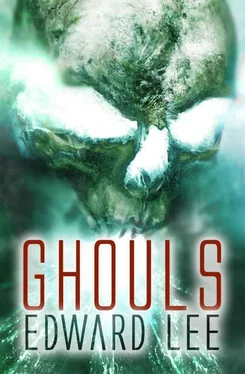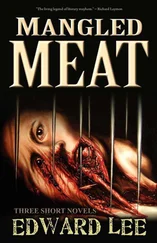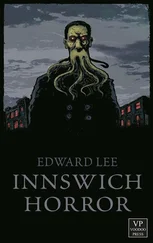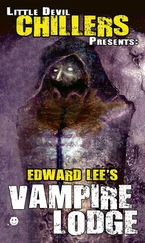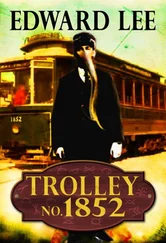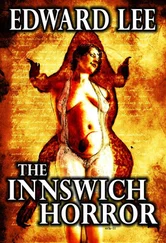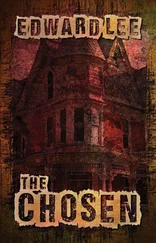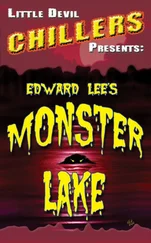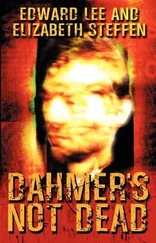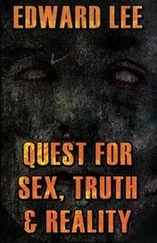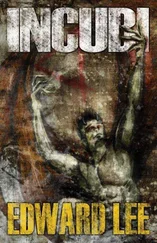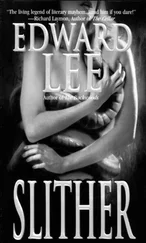“Oh, Kurt, shut up,” she said, but her voice was very quiet, very calm. “We’ve known each other for most of our lives, haven’t we? For as long as I can remember, whenever we’ve been alone, you’ve never been able to talk to me straight up. You act like you’re sitting on a box of dynamite, and if you say something true, you’ll blow up. After all those years, don’t you think it’s time you were honest with me?”
He answered in a gray, resolute monotone, as if confessing to murder. “I love you, I always have. I’m not talking about infatuation or lust. No, it’s love—I’m sure. Whenever I go out with a girl, it’s no good, because I want her to be you, and it never amounts to anything because I simply don’t care. I’ve been waiting, planning for years, hoping for some way to tell you this. But I never could. No guts, I guess.” He put his head back and sighed, smiling, for he knew she could not see his face in the dark. He must tell it all, he must. The truth had stained his soul long enough. He must cleanse himself of the truth, no matter how bad she thought he was. “I’ve hated Lenny for nearly as long as I’ve loved you, and when you married him, I thought I’d die. It was like being buried alive. The only real aspiration of my life was gone in the space of a blink.” He drew in another deep, cleansing breath. He was purging himself of this. At last he was doing it, his hour of the wolf finally unloosed. “Remember that English class we had together in high school, when we each had to pick our favorite poem and analyze it in front of the whole class?”
“I remember,” she said. “That was tenth grade, right?”
“Right, tenth grade. And the poem you picked was Because I Could not Stop for Death by Emily Dickinson, and Glen did some stupid song by Black Sabbath; but mine was a poem by Byers that no one, including the teacher, had ever heard of. The name of the poem was Three and the last lines were, ‘This goes on forever, but I can wait longer, your years are my seconds, your misery my bliss.’”
“I don’t understand,” she said.
“Don’t you see? Honesty. You want honesty, well, there it is. More than anything else I wanted you to be miserable with every guy you’d ever become involved with. And when you married Lenny, I wished for him to blow it with you. It didn’t matter how, I wished he’d get put in prison, or run out on you, or die. Anything. I wanted your marriage to fail, and when it finally did… I rejoiced. Because I’m certain that no one could ever love you as much as I do. No one. Ever.”
Now the house seemed too quiet; Kurt stood frozen in it. This moment had festered in him so long but now that he’d said it, instead of relief, he felt turmoil.
She came gently through the darkness, nearly gliding as the passage of a shadow. Sweet shock traveled through him when they embraced; her touch was warm and direct. He could see the moon reflecting in her eyes, a perfect white dot on each iris.
They kissed and touched and held each other, and when the moon had inched out of the frame of the window, they went upstairs, hand in hand and quiet as ghosts.
— | — | —
CHAPTER TWENTY-EIGHT
At five in the afternoon, Officer Mark Higgins directed traffic, without much enthusiasm, around the right-hand lane of 154, a short stretch of which had been drawn off with hissing red Sentry road flares. Within, a shiny Ford tow truck from DeHenzel’s Texaco backed into position. Higgins had spotted the demolished guardrail half an hour earlier; sometime during the night, Lenny Stokes’s Chevelle had fallen off the post, and could be seen now at the bottom of the gully, half submerged.
The tow truck team began to set up, winding off cable from the winch. Kurt and Chief Bard peered reluctantly down over the rail.
“The stupid cock-hanging son of a bitch really did it this time,” Bard observed. “Thank God it’s a state guardrail, anyway. Ten to one Stokes was drunk or stoned.”
And dead, Kurt thought. “Is he in the car?”
“Won’t know that till we pull it out.”
The tow truck operator tossed a length of hitch cable over the side, then went back to the pulley sticks. The second man from DeHenzel’s, the tall criminal-looking young man with freckles, bright blond hair, and green overalls, stepped over the rail and began to rappel down the slope of the gully.
“Be careful,” Bard said. “There’s quicksand down there.”
“No shit,” said the blond man.
“Maybe Stokes went down in the quicksand,” Kurt pointed out.
Bard seemed to experience a stab of gas at the possibility. “He better be in the car—dead or alive, I really don’t give a wad. Where am I gonna get the money to drag that ravine?”
Kurt looked down crookedly, his mind blank. It was easy to imagine Stokes’s waterlogged body flopping out of the car when they opened it up; his dead mouth would snap open and gush swamp water. But then the line was connected to the back bumper, and the blond man in green overalls shouted, “Up with this fucka!”
The winch made a sound like cats in a mulcher. The cable pulled taut—nothing at first—and then the Chevelle began to creak and rise jerkily out of the ravine.
Higgins was busy waving gawkers past. When the car was hauled up over the rail, Kurt and Bard took several hasty steps back. They watched as if leery of an explosion.
Impassively, the blond man yanked open the door. Out poured brackish water and mud. “No body,” said the blond man.
“Piss,” said Bard.
The blond man turned. On the front of his overalls he wiped his huge, grimy hands. Kurt focused on the hands, disappointed to count five fingers on each. “Who’s paying for this?” the blond man asked.
“Put it on the account,” Bard answered.
“What account?”
“The account we’ve had with DeHenzel’s for the last ten years.”
“Oh, that account.”
Kurt was staring at the dripping car. “Either Stokes climbed out and walked home, or he’s at the bottom.”
“Looks that way,” Bard said. “We’ll check around town. If no one’s seen him, I’ll have to drag the fucking ravine.” But he seemed to already have put the question of Stokes’s fate behind him. “How come you didn’t tell me Glen Rodz was polishing his post in Willard’s wife?”
“I only found out yesterday,” Kurt semi-lied. “Who told you?”
“Willard. He came to the station today and told me his wife still hadn’t shown up. So I said what do you mean still? And he says he talked to you about it already.”
“I didn’t put much stock in it at the time,” Kurt admitted. “She’d been gone less than a day.”
“Well, according to Willard there’s been no sign of her for almost forty-eight hours now. We can assume she’s officially missing. And that bugs me because Glen Rodz seems to be missing, too.”
“How do you know?”
Bard smiled, ever so slightly. “I’ve had Higgins keeping an eye on his place. Glen never came home last night, and he isn’t answering his phone.”
“It’s not illegal to leave town, you know.”
“It is when you’re a suspect in a murder investigation.”
“But he isn’t a suspect.”
“Damn near.” Bard was convinced. “When did you see him last?”
“Yesterday. I gave him a lift home after I talked to Dr. Willard.”
“He say where he might be going?”
Kurt shook his head. He felt something close to shame. All this time sticking up for Glen, and now it seemed he’d been wrong.
Bard liked to rub things in. “Conclusions?”
“All right, I guess you were right all along,” Kurt said. “Maybe he did split with Willard’s wife. Maybe he is a flake.”
Читать дальше
